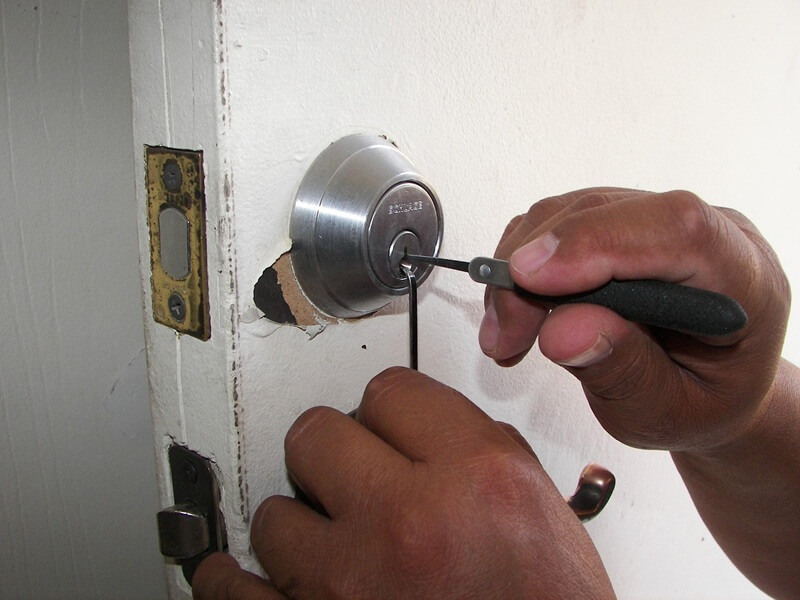Locksmithing isn’t dying but transforming dramatically; traditional skills alone are no longer sufficient, but those who adapt to electronic security systems have promising career prospects.
For centuries, locksmiths have been the guardians of security, crafting and manipulating mechanical devices to protect valuables. Today, this age-old profession stands at a crossroads as digital technology revolutionizes how we secure our homes and businesses. This article discusses the current situation and future possibilities for locksmithing in the USA, exploring whether the profession is fading or reinventing itself for modern times.
State of the Locksmithing Trade in the USA
| Factor | Traditional Locksmithing | Modern Locksmithing |
| Job Outlook | Declining for purely traditional services | Growing for those who adapt to electronic systems |
| Annual Earnings | $35,000-$60,000 (traditional only) | $50,000-$90,000+ (with electronic specialization) |
| Market Demand | Decreasing for mechanical locks only | Increasing demand for integrated security solutions |
| Required Skills | Mechanical expertise | Mechanical + electronic + IT security knowledge |
| Competition | High from DIY solutions and big box stores | Lower in specialized electronic security |
| Entry Barriers | Lower (traditional apprenticeship) | Higher (technical certifications required) |
The Evolution of Locksmithing

The locksmithing trade has undergone a significant transformation since its inception. Traditional locksmiths primarily worked with mechanical locks, developing specialized skills in:
- Cutting and duplicating keys
- Installing and repairing mechanical locks
- Picking locks for emergency access
- Safe manipulation and repair
Today’s locksmithing landscape looks vastly different. The profession has expanded beyond mechanical devices to encompass electronic security systems. Modern locksmiths must understand everything from traditional pin tumbler mechanisms to sophisticated digital access controls. This shift reflects an evolution in tools and the core expertise necessary for success in the field.
The security industry has advanced beyond traditional locks, now incorporating integrated systems that blend mechanical, electronic, and digital elements to form holistic security solutions.
Challenges Facing Traditional Locksmiths
Traditional locksmiths face numerous challenges that threaten their livelihood:
- DIY Solutions: The rise of YouTube tutorials and readily available lock replacement kits has empowered homeowners to handle basic lock changes themselves.
- Retail Competition: Big box stores now offer basic lock installation services at competitive prices, cutting into a traditional revenue stream.
- Smart Technology: With keyless entry systems becoming more common, emergency lockout calls, once a locksmith’s bread and butter, are declining.
- Apprenticeship Decline: Fewer young people are pursuing traditional apprenticeships, creating a knowledge gap in the industry.
- Unlicensed Operators: The market is increasingly crowded with untrained individuals offering cut-rate services, often at the expense of quality and security.
Opportunities in Modern Locksmithing
While traditional services face declining demand, modern locksmithing offers exciting growth areas:
Locksmiths with knowledge in both traditional locks and electronic systems have found new opportunities through smart home integration. Commercial security consulting allows locksmiths to leverage their expertise in a higher-paying advisory capacity.
Other promising specializations include:
- Electronic access control system installation and maintenance
- Security camera network setup and monitoring
- High-security lock installation for specialized facilities
- Automotive security, including transponder key programming
These expanded services represent survival tactics, pathways to higher earnings, and increased job security in the locksmithing profession.
Adaptation and Survival Strategies
For locksmiths looking to thrive in this changing landscape, adaptation is essential. Successful strategies include:
- Expanding service offerings to include electronic security systems
- Pursuing certifications in emerging security technologies
- Developing expertise in specialized niches like antique locks or high-security systems
- Establishing a strong online presence to market services to a tech-savvy clientele
- Forming strategic partnerships with general contractors and security companies
These approaches allow locksmiths to leverage their mechanical expertise while adding new skills that position them for future growth.
Education and Certification Pathways
The path to becoming a locksmith is evolving alongside the profession itself. While traditional apprenticeships still exist, formal education and certification are increasingly important. Aspiring locksmiths should consider below licenses and certifications:
- Technical programs in security technology
- Certifications from organizations like ALOA (Associated Locksmiths of America)
- Continuing education courses in electronic security
- Cross-training in IT security principles
These educational investments open doors to specialized positions and higher earning potential within the security industry.
Consumer Perspective
From a consumer standpoint, traditional locksmith services remain relevant in specific contexts. Emergency lockouts, antique lock restoration, and high-security mechanical installations still require specialized expertise that DIY solutions can’t match.
However, consumer preferences are increasingly shifting toward integrated security solutions that combine convenience with protection. Regional differences exist across the USA, with traditional services maintaining stronger demand in rural areas while urban markets embrace technological solutions more rapidly.
Summing Up
Is locksmithing a dying trade? The evidence suggests it’s not dying but rather transforming. Traditional locksmithing skills alone may no longer sustain a thriving business, but those who adapt to include electronic and digital security services are finding new growth opportunities.
The future outlook for the profession remains positive for those willing to evolve. For individuals considering locksmithing as a career, the path to success lies in embracing both mechanical fundamentals and emerging technologies. As security continues to evolve in the digital age, so too will the ancient art of locksmithing not fade away, but reinvent itself for the challenges of tomorrow.





